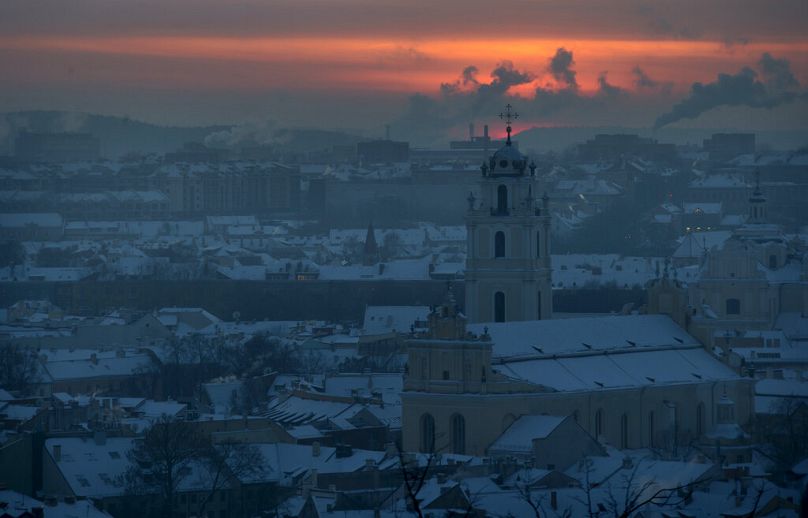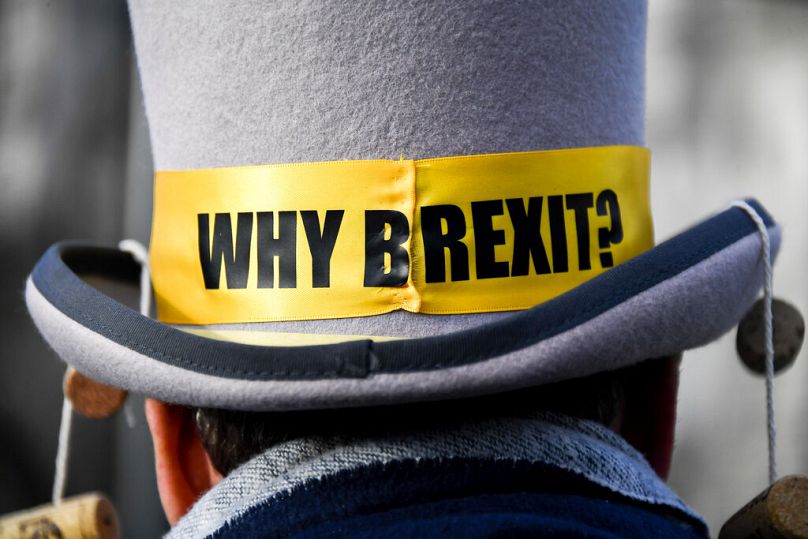Lithuanians, Latvians and Estonians overwhelmingly support the EU, which has helped usher in an era of freedom and prosperity. But what makes some oppose it?
Support for the EU in the Baltic states is high.
 ADVERTISEMENT
ADVERTISEMENT
 ADVERTISEMENT
ADVERTISEMENT
In Lithuania, 79% of the population see EU membership as a “good thing”, 18% say it is neither "good nor bad" and only 2% believe it is “bad”, according to the latest poll from Eurobarometer.
Significant majorities in Estonia (67%) and Latvia (62%) also see membership of the 27-state bloc as positive, the same survey found.
There are many reasons why. The EU has brought multiple benefits to these tiny Baltic states, annexed by the Soviet Union until 1991. These include visa-free travel, economic development and human rights - to name just a few.
So why then would an, albeit tiny, minority oppose the EU?
Across Lithuania, Latvia and Estonia, euroscepticism takes various forms and is shaped by factors unique to each country.
In Estonia, Aleksandra Palkova from the Latvian Institute of International Affairs, says anti-EU sentiment mainly comes from the country’s Russian-speaking minority, who make up nearly a quarter of the population.
In what she calls a “generalistic perspective”, Palkova divides this group into two loose categories, though she stresses "significant variations" exist within each.
"There are the radical ones who support Russia. They are populist and fall for disinformation. Then there are neutral Russian speakers who cannot associate with either side, be it Western or Russian. They do not have any position."
Like eurosceptics elsewhere, the anti-EU fringe in Estonia claims Brussels undermines the country's sovereignty by supposedly "dictating all the decisions”, according to Palkova.
In the 2023 elections, Estonia’s far-right Conservative People’s Party (EKRE) - whose current leader Martin Helme made a slogan of “blacks go back” in 2013 - won 17 seats in the country’s 101-seat parliament.
Though favouring EU membership, EKRE wants to claw back power, cut bureaucracy and significantly reform Brussels.
Expert Palkova says a big issue throughout the region is that “certain parts of society” do not understand how the EU works.
She cites conducting focus groups with this “radical wing” in Estonia, who would routinely say they enjoyed EU benefits, notably the freedom of movement, yet did not associate them with EU membership.
'We need to prepare for a possible collapse of the EU'
But eurosceptic views can also be found across the Baltics, distinct from the Russian-speakers or extremist anti-EU parties.
Lithuania’s National Alliance Party - which says its goal is the “survival of the Lithuanian nation” - is one example.
While believing Lithuania should stay in the union, its founder Vytautas Sinica told Euronews that plans of further EU integration "were not just harmful, but might even cause the disintegration of the bloc."
Besides making independence increasingly “meaningless”, he criticised more centralisation as “dangerous” as it could cause the EU's disintegration by making "Italians, French, the Dutch or even the Germans want to leave", which in turn would harm Lithuania.
"We need to prepare for the possible collapse of the EU and do everything to prevent it. A decade ago, in Lithuania, it was laughed at when someone said out loud that the EU might collapse. Then Brexit happened," he said.
"Lithuania does not need the EU to collapse, it needs it to grow stronger. Only the strengthening should be more freedom for nations, not more integration," he added.
‘Now we are standing on two legs’
Lithuania’s National Alliance Party offers a nuanced take on euroscepticism, while remaining firmly committed to the EU. But there are other subtleties.
Owing to the minimal percentage of people in the Baltics opposing the EU, expert Palkova said anti-EU political parties often try to conceal themselves, knowing such views will make them unpopular.
In Latvia, the former ‘Eurosceptic Action Party’ rebranded itself as the ‘Action Party’ in 2008, after securing a meagre 0.37% in 2006 elections.
“Eurosceptic parties need issues they can use against the EU that concern society. But since people in the Baltics are worried about Russia and economic benefits, which are covered by the EU, eurosceptic ideas don't really work."
"They don't have anything to pick up on."
Still, views towards the EU can evolve and change over time.
Palkova pointed to a “natural transition” occurring within the Baltics since they joined the EU in 2004
First, she says there was “full-speed integration”, as the three new members rapidly adopted EU legislation and “did everything to be among the core of the European Union."
Then with Russia’s invasion of Crimea in 2014 - which galvanised attention to the EU’s eastern frontier - a second stage emerged where the states realised they had a say in Brussels.
Now the expert says things have moved to a third phase where some in the region are beginning to question their relationship with the EU, asking whether more integration is needed.
“There is this stage of integration where countries understand they have to think about their sovereignty and rights, often amid a small eurosceptic or far-right uprising. But that’s a natural process," said Palkova.
"It's just the natural logic of the EU and how it functions through history."













